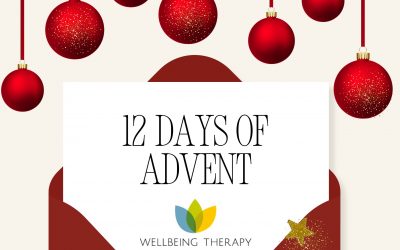
On World Menopause Day, Rebecca Woods offer some words of comfort and some words of advice for those women entering that part of their lives.
Firstly, some lingo…
Perimenopause – “peri” means “around menopause.” This is the time before periods have stopped and may last up to 10 years.
Menopause – is often used to describe the overall experience of menopausal transition or change (menopause is also referred to as ‘the change’). Medically, menopause refers to the specific point in time when it has been 365 days since someone had a period (this can be due to natural process, surgery or medical treatments). So, menopause is actually just a day!
Everyone born with ovaries will go through the menopause at some point. The average age is 51.
Post menopause – the time after menopause. This may represent over a third of someone’s life.
Whilst the physical symptoms of menopause tend to be better documented (think hot flushes), our mental health can also be affected during this time and can include symptoms and experiences such as:
- Brain fog
- Anxiety
- Mood swings
- Reduced confidence and sense of self
- Low mood
- Reduced motivation.
- Sleep can also be affected, which in turn can impact on our wellbeing generally.
If you are concerned about how you are feeling, and/or feel that symptoms are not easing, consider speaking to your GP.
Things that can be supportive during this time…
- A healthy sleep routine (try to aim for 7-8 hours per night, keep your bedroom cool and dark and free from unhelpful distractions)
- Eating healthily (try making small, achievable changes such as aiming to include one additional piece of fruit or vegetable each day)
- Regularly moving your body (think the 3 Ps – Pacing, Planning, Prioritise)
- Staying mentally active (this may involve trying a new activity or revisiting a former hobby e.g. playing an instrument)
- Finding ways to reduce stress (breathing exercises, keeping a diary, spending time outdoors, and regularly doing things you enjoy are some examples)
- Staying connected (social connectedness can help to reduce anxiety and depression)
- Make time for you (think of things that lift you and bring moments of joy)
Heather Corinna, an American author and educator, describes how things that help people navigate puberty can also be supportive during menopause, including:
- Access to clear, comprehensive information
- Realistic expectations and comforts that are aligned to our individual needs
- Access to what we need to care for ourselves
- Respect, sympathy, empathy and kindness from others
Finally, some inspirational words…
“People are afraid of changing; that they’re losing something. They don’t understand that they are also gaining something.” Sharon Stone
“It’s a time of liberation. It’s a time of shedding the shackles of inhibition and giving a damn.” Davina McCall
“What a woman’s body is taking her through is important information. It’s an important thing to take up space in a society, because half of us are going through this but we’re living like it’s not happening.” Michelle Obama
Some sources of information…
Websites:
NHS – Menopause
https://www.nhs.uk/conditions/menopause
Balance – app and website, developed by Dr Louise Newson (GP & menopause specialist) & team:
https://www.balance-menopause.com/menopause-library/
Rock My Menopause – website for the campaign created by the Primary Care Women’s Health Forum (PCWHF). Includes resources on menopause for transgender people and people with learning disabilities
https://rockmymenopause.com/about-us/
Podcast:
Menopause Whilst Black
Karen Arthur, podcast host & speaker, is an advocate for diversifying menopause & is committed to sharing the stories of black women living in the UK.
https://www.thekarenarthur.com/menopausewhilstblack
Book:
“What fresh hell is this? Perimenopause, Menopause, other indignities and you” Heather Corinna
READ MORE: News – ‘Happy birthday to us! WTS turns four’
READ MORE: Blog – ‘The Great North Run gave me a massive buzz!’
WATCH: Meet occupational therapist Rebecca Woods…










